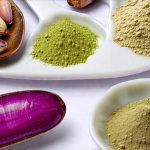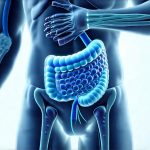Digestive discomfort is an incredibly common experience, impacting millions worldwide. From occasional bloating and gas to more chronic conditions like Irritable Bowel Syndrome (IBS) and Inflammatory Bowel Disease (IBD), the spectrum of digestive issues is vast and often debilitating. Traditional approaches to managing these problems frequently involve pharmaceutical interventions aimed at symptom management, but increasingly people are seeking complementary and alternative strategies that address the root causes of imbalance within the gut ecosystem. This shift reflects a growing understanding of the intricate connection between the microbiome – the trillions of microorganisms residing in our digestive tract – and overall health, as well as a desire for more holistic wellness solutions.
The burgeoning field of gut health recognizes that simply masking symptoms isn’t enough; fostering a robust and balanced internal environment is key to long-term relief and improved wellbeing. This involves not only dietary modifications but also targeted support through probiotics – live microorganisms intended to benefit the host – and increasingly, strategic combinations with carefully selected herbal extracts known for their digestive properties. These botanical allies offer centuries of traditional use and a growing body of scientific research suggesting they can complement probiotic action, enhance gut function, and alleviate discomfort in ways that single-agent therapies often cannot. This article will explore how combining probiotics with specific herbal extracts can be a powerful approach to achieving improved digestive relief.
The Synergy Between Probiotics & Herbal Extracts
Probiotics work by introducing beneficial bacteria into the gut, helping to restore microbial balance. However, their effectiveness isn’t always guaranteed. Factors like stomach acidity, antibiotic use, and dietary habits can all impact probiotic survival and colonization. This is where herbal extracts come in – they offer a way to create a more welcoming environment for probiotics to thrive and amplify their effects. Certain herbs possess properties that directly address common digestive issues like inflammation, spasms, or impaired motility, while others can support the growth of beneficial bacteria or protect them from harsh conditions.
The combination isn’t simply additive; it’s often synergistic. For example, an herb with anti-inflammatory properties might reduce gut irritation, allowing probiotics to better establish themselves and exert their benefits. Conversely, a probiotic strain known to produce short-chain fatty acids (SCFAs) – vital for gut health – can enhance the absorption of bioactive compounds from herbs. This interplay creates a more comprehensive approach to digestive support than either modality could achieve alone. It’s important to note that selecting the right probiotics and herbal extracts is crucial; not all combinations are created equal, and specificity based on individual needs is paramount.
Consider the concept of ‘prebiotics’. While probiotics deliver live cultures, prebiotics provide nourishment for those cultures – and many herbs naturally contain prebiotic fibers or compounds that support probiotic growth. Chicory root inulin, a well-known prebiotic, is found in some herbal formulas alongside probiotics to boost their efficacy. This demonstrates how herbal teas aren’t just addressing symptoms directly; they are actively contributing to the long-term health of the microbiome itself.
Targeted Herbal & Probiotic Combinations for Specific Concerns
Different digestive complaints require different approaches. A “one size fits all” mentality rarely works in gut health, and tailoring probiotic/herbal combinations to specific needs is essential. For instance, someone experiencing bloating and gas may benefit from a combination of probiotics containing Bifidobacterium infantis – known for its ability to reduce gas production – alongside herbs like ginger and fennel. Ginger’s prokinetic properties help move gas through the digestive system, while fennel relaxes intestinal muscles, reducing spasms that contribute to discomfort.
Individuals struggling with IBS often experience symptoms like abdominal pain, altered bowel habits (diarrhea, constipation, or both), and bloating. In this case, a probiotic blend containing Lactobacillus plantarum – shown in some studies to alleviate IBS symptoms – could be combined with chamomile and peppermint. Chamomile offers calming and anti-inflammatory effects, reducing gut irritation, while peppermint relaxes intestinal muscles and can ease cramping. For those dealing with constipation, probiotics like Bifidobacterium longum paired with senna or cascara sagrada (used cautiously and short-term) can help stimulate bowel movements naturally.
It’s vital to emphasize responsible sourcing and quality control when selecting both probiotics and herbal extracts. Look for reputable brands that undergo third-party testing to ensure potency, purity, and absence of contaminants. Furthermore, consulting with a healthcare professional is advisable before starting any new supplement regimen, especially if you have underlying health conditions or are taking medications. Understanding nutrition support can also be very helpful.
Addressing Inflammation & Gut Permeability
Chronic inflammation plays a significant role in many digestive disorders. Leaky gut syndrome – characterized by increased intestinal permeability – often accompanies chronic inflammation and can exacerbate symptoms. Probiotic strains like Lactobacillus rhamnosus GG have demonstrated the ability to strengthen the gut barrier, reducing permeability. Combining this with herbs known for their anti-inflammatory properties offers a powerful strategy for addressing these issues.
- Turmeric (Curcumin): A potent anti-inflammatory agent that can reduce gut inflammation and support healing. Look for formulations containing piperine (black pepper extract) to enhance curcumin absorption.
- Boswellia Serrata: Another herb with strong anti-inflammatory properties, traditionally used in Ayurvedic medicine to address digestive issues and joint pain.
- Aloe Vera: While often associated with skin health, aloe vera can also soothe the digestive tract and reduce inflammation when taken internally (ensure it’s a product specifically formulated for internal use).
The combination of probiotics strengthening the gut barrier alongside herbal extracts reducing inflammation creates a positive feedback loop, promoting long-term healing. It’s important to remember that inflammation isn’t always visible; subtle signs like fatigue or skin issues can indicate underlying gut inflammation. A holistic approach addresses both the symptoms and the root causes. Consider combining traditional remedies for a comprehensive plan.
Supporting Digestion & Nutrient Absorption
Impaired digestion and nutrient absorption are common contributors to digestive discomfort. Probiotics can aid in breaking down food and enhancing nutrient uptake, but certain herbs offer additional support. Bacillus subtilis is a particularly resilient probiotic strain that produces enzymes helping digest complex carbohydrates and proteins. Pairing this with specific herbal extracts can significantly improve digestive efficiency.
- Ginger: As previously mentioned, ginger’s prokinetic properties help move food through the digestive system, preventing stagnation and bloating.
- Dandelion Root: Supports liver function, which is crucial for digestion and detoxification. It also contains prebiotic fibers that nourish beneficial gut bacteria.
- Artichoke Leaf Extract: Stimulates bile production, aiding in fat digestion and absorption.
Furthermore, addressing enzyme deficiencies can be vital. Many people lack sufficient enzymes to properly digest lactose, gluten, or other food components. Combining probiotics with targeted digestive enzyme supplements alongside appropriate herbal support can restore optimal digestive function. This approach acknowledges that digestion is a complex process requiring adequate enzymatic activity and a healthy microbiome. Meal planning can also streamline this process.
Calming Gut Spasms & Reducing Discomfort
Intestinal spasms and cramping can be incredibly painful and disruptive. Probiotics can influence gut motility, but combining them with herbs traditionally used to relax intestinal muscles offers targeted relief. Lactobacillus acidophilus has been shown to modulate gut motility in some studies. Pairing this with calming herbs creates a synergistic effect.
- Peppermint: Relaxes intestinal muscles, reducing spasms and easing cramping (avoid if you have GERD).
- Chamomile: Calming and anti-inflammatory properties soothe the digestive tract and reduce muscle tension.
- Lemon Balm: Traditionally used to relieve stress and anxiety, lemon balm can also help calm the gut and reduce discomfort.
Beyond simply addressing the spasms themselves, it’s important to identify underlying causes. Stress, anxiety, and emotional factors often contribute to gut dysfunction. Incorporating stress management techniques alongside probiotic/herbal combinations is vital for long-term relief. This holistic approach recognizes that the gut-brain connection is powerful and that addressing mental wellbeing is crucial for digestive health. It’s also helpful to understand best meal types to avoid triggering discomfort. Finally, consider safe cooking techniques for optimal digestion.


















